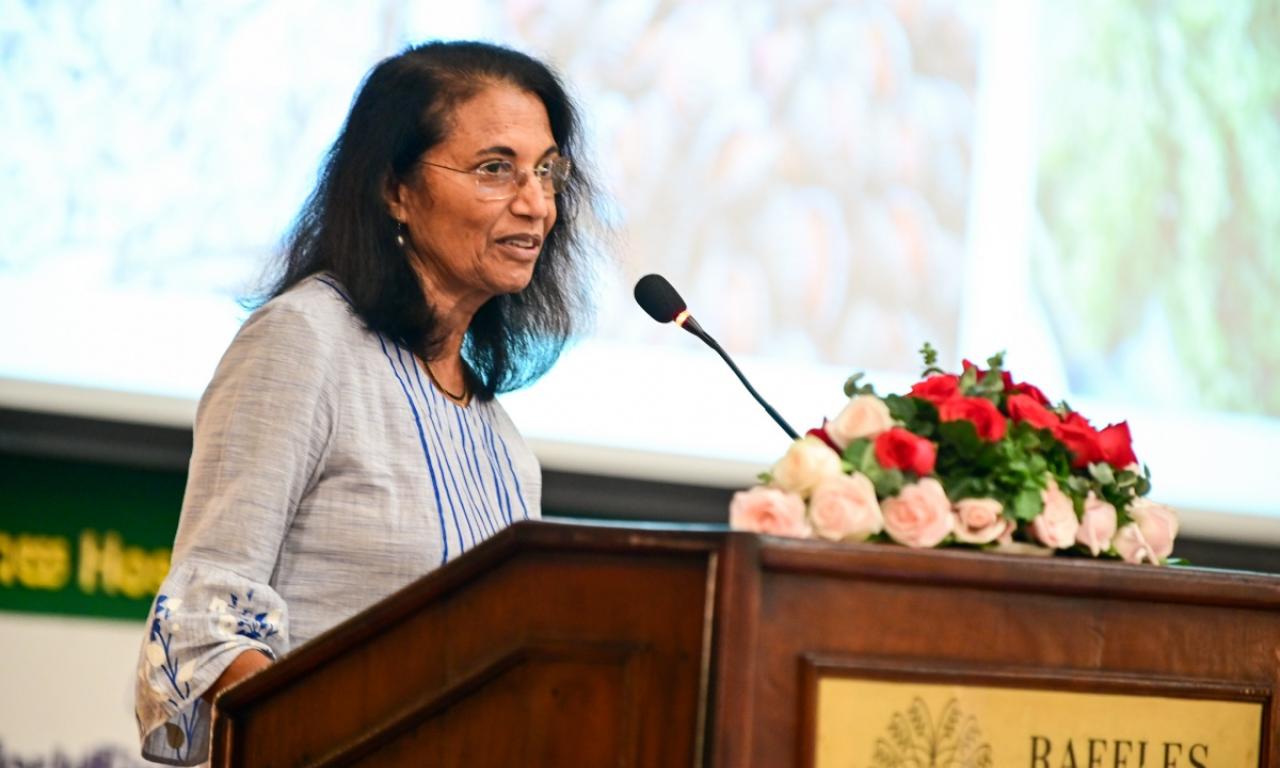
WorldFish’s Global Lead for Nutrition and Public Health Dr. Shakuntala Thilsted, who was recently awarded the 2021 World Food Prize, addressed the UN General Assembly telling member states of the game-changing solutions aquatic foods offer for a food systems transformation that supports the sustainable development agenda.
Joining the High-Level Event on the Ocean last Tuesday, Thilsted addressed obstacles and opportunities in both fisheries and aquaculture and highlighted the need for greater recognition of aquatic food systems in the UN Food Systems Summit to be held in Rome in October 2021.
“With just 9 years to achieve the Sustainable Development Goals, low- and middle-income countries in particular must develop and implement targeted policies, strategies and investments to harness the power of diverse aquatic foods to transform food, land and water systems and ensure no one is left behind,” said Thilsted.
“With the UN Food Systems Summit taking place this year, the Decade of Action on Nutrition halfway through, and the Decade of Ocean Science for Sustainable Development just beginning, 2021 is a momentous year for action,” she urged member states.
Thilsted gave examples of how sustainable and inclusive management of aquatic food systems can secure access to diverse aquatic foods and livelihood opportunities for the poor and most vulnerable. The World Food Prize Laureate highlighted how co-managed community fish refuges in rice field fisheries has boosted food and nutrition security in Cambodia and how homestead aquaculture, using pond polyculture methods which farm micronutrient-rich small fish and large fish species together, has improved the health of mother and children Bangladesh and throughout Asia, the Pacific and Africa.
Joined by FAO Chief Economist Máximo Torero, the panel dedicated to aquatic food systems drew parallels between global inequities and the ways that aquatic food consumption and subsidies adversely impact vulnerable populations.
“In many countries, especially high-income countries, aquatic foods are being sought after as healthy foods. This global intake of aquatic foods masks severe inequity between countries and populations, which has only been exacerbated by COVID-19. But there are a number of nutrition-sensitive strategies and policies that can be implemented to guarantee nourishment for all people,” said Thilsted.
Panelists also highlighted the global effort to “build forward better” from the impacts of the COVID-19 pandemic and discussed how a sustainable ocean economy can support economic growth in low- and middle-income countries. They noted the opportunities of the blue economy to allow developing countries to “catch up” from trade revenues through sustainable aquatic food exports.
The one-day thematic debate, convened by the President of the United Nations General Assembly Volkan Bozkır, took place four years after the 2017 UN Ocean Conference. The event aimed to highlight progress made on SDG 14 on life below water, address the impacts of the pandemic on the ocean economy and review the opportunities and challenges to achieving the 2030 Agenda on Sustainable Development.
Read more highlights and images of the main proceedings here.
Watch the High-Level Debate on Oceans at 75th session f the General Assembly here.
